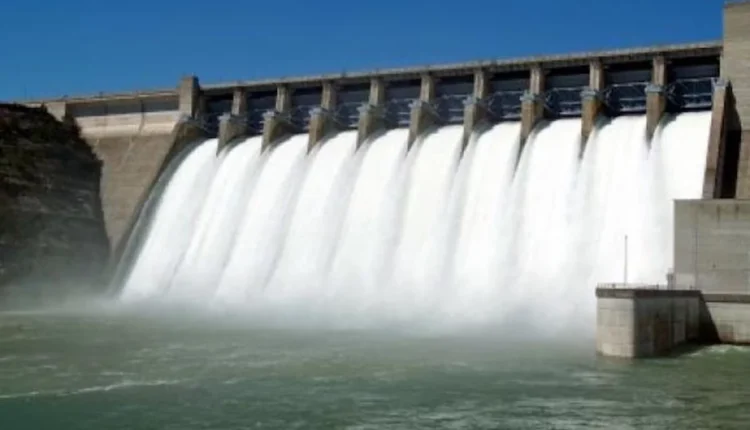Dasin Hausa Dam completion a top priority- FG
The Federal Government has reiterated its commitment to completing the Dasin Hausa Dam project in Adamawa, calling it a top priority to address water scarcity and enhance flood control in vulnerable rural communities.
This was disclosed by the Minister of Water Resources and Sanitation, Prof. Joseph Utsev, during the 2025 Ministerial Press Briefing Series in Abuja on Friday.
He noted that the renewed focus on the dam was timely, following the devastating floods of 2024, which displaced many residents after the Alau Dam overflowed.
According to him, the Dasin Hausa Dam will act as a buffer against future flooding while supporting irrigated agricultural development.
He added that a transactional adviser has already been appointed for the project.
Utsev said the ministry’s interventions aligned with President Bola Tinubu’s Renewed Hope Agenda, especially priority three, which focused on enhancing agricultural productivity and ensuring national food security.
He stated that three major multipurpose dams had been completed and commissioned in Niger, Kogi, and Benue, as part of the ministry’s achievements from 2023 to date.
Utsev further disclosed that the 40MW Kashimbilla Hydropower Plant in Taraba was concessioned under a Public-Private Partnership (PPP) arrangement, generating over N7.1 billion in commencement fees for the federal government’s special concession account.
He added that two other major hydropower projects; Katsina-Ala (460MW) in Benue and Farin Ruwa (20MW) in Nasarawa were at various stages of PPP concession.
“These projects contribute not only to electricity generation but also to the transportation of agricultural produce and the development of cottage industries in rural areas,” the minister stated.
On irrigation, Utsev said the ministry had completed four major projects, including the rehabilitation of 9,490 hectares at Bakolori in Zamfara and 2,100 hectares at Dadin-Kowa in Gombe state.
Read Also; Nigeria’s inflation rate eases to 23.71% in April- NBS
He added that micro-irrigation systems had been established in Oyo and Jigawa to promote all-year farming through the use of solar-powered boreholes and greenhouses.
The minister noted that seven water supply projects had either been completed or were nearing completion, benefiting more than one million people.
“These include the Gashua and Potiskum water supply schemes in Yobe State and a water facility at the NYSC Orientation Camp in Abuja”.
Utsev also stated that more than 560 water schemes were implemented in partnership with state governments and donor-supported programmes.
He emphasised that access to clean and safe water was a fundamental human right, noting that the ministry had scaled up collaboration with sub-national governments and development partners to expand access to solar-powered water systems in underserved areas.
Utsev announced that an additional 40 Local Government Areas had attained Open Defecation Free (ODF) status, bringing the national total to 142.
He added that the “Clean Nigeria: Use the Toilet” campaign had been intensified through public awareness jingles in five Nigerian languages and the construction of sanitation facilities in schools and public places across 23 states.
The minister also revealed that a revised Clean Nigeria Campaign Implementation Strategy (2025–2030) had been launched to guide progress towards making Nigeria Open Defecation Free.
“We are not just building toilets; we are restoring dignity. Improved sanitation positively affects public health, school attendance especially for girls and overall community well-being,” he said.
Earlier, the Minister of Information and National Orientation, Mohammed Idris, reaffirmed the government’s commitment to people-centred policies aimed at promoting economic stability.
He urged the media to report such developments responsibly and with a sense of patriotism.
The Voice Media Trust (VMT NEWS) reports that the briefing was also attended by the Minister of Arts, Culture and Creative Economy, Hannatu Musawa, and the Minister of Works, Sen. David Umahi.

